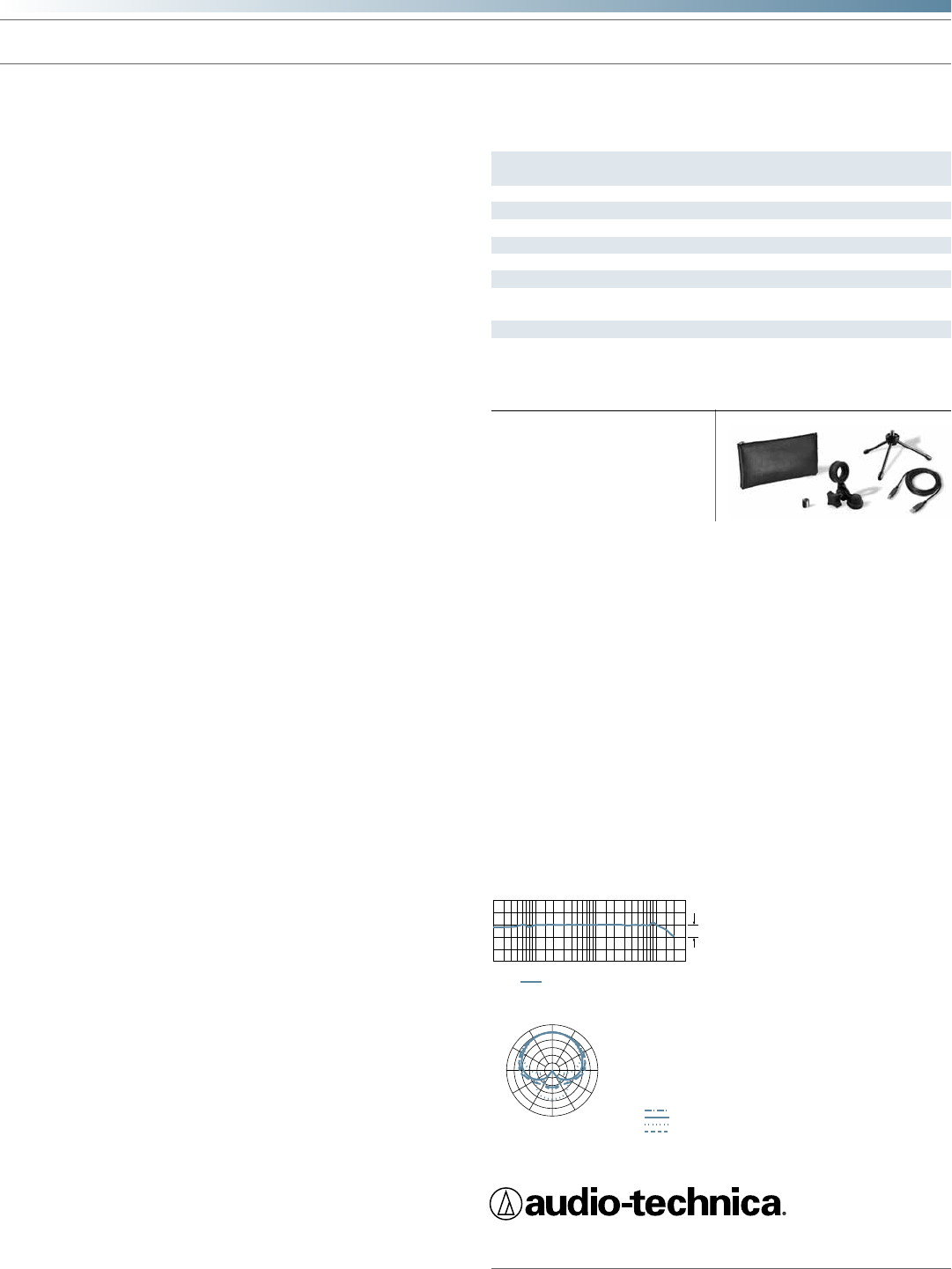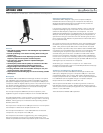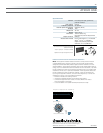
AT2020 USB
Audio-Technica U.S., Inc., 1221 Commerce Drive, Stow, Ohio 44224
Audio-Technica Limited, Old Lane, Leeds LS11 8AG England
©2010 Audio-Technica U.S., Inc. audio-technica.com 0001-0205-01
Specications
polar pattern
frequency response: 20–16,000 Hz
LEGEND
200 Hz
1 kHz
5 kHz
8 kHz
SCALE IS 5 DECIBELS PER DIVISION
240˚
180˚
210˚
270˚
300˚
330˚
0˚
150˚
120˚
90˚
30˚
60˚
12" or more on axis
LEGEND
Frequency in Hertz
Response in dB
10 dB
100
50
200
10k
5k
1k
500
2k
20k
Fixed-charge back plate, permanently
polarized condenser
Cardioid
20-16,000 Hz
USB Power (5V DC)
16 bit
44.1 kHz
374 g (13.2 oz)
162.0 mm (6.38") long,
52.0 mm (2.05") maximum body diameter
USB-type
Pivoting stand mount for
5
/
8
"-27 threaded
stands;
5
/
8
"-27 to
3
/
8
"-16 threaded
adapter; soft protective pouch; tripod
desk stand; 3.1 m (10') USB cable
Element
Polar pattern
Frequency response
Phantom power requirements
Bit depth
Sample rate
Weight
Dimensions
Output connector
Accessories furnished
In the interest of standards development, A.T.U.S.
offers full details on its test methods to other industry
professionals on request.
1 Pascal = 10 dynes/cm
2
= 10 microbars = 94 dB SPL
Specications are subject to change without notice.
Federal Communications Commission Statement
Note: This equipment has been tested and found to comply with the limits for
a Class B digital device, pursuant to part 15 of the FCC Rules. These limits are
designed to provide reasonable protection against harmful interference in a resi-
dential installation. This equipment generates, uses and can radiate radio frequency
energy and, if not installed and used in accordance with the instructions, may cause
harmful interference to radio communications. However, there is no guarantee that
interference will not occur in a particular installation. If this equipment does cause
harmful interference to radio or television reception, which can be determined
by turning the equipment off and on, the user is encouraged to try to correct the
interference by one or more of the following measures:
— Reorient or relocate the receiving antenna.
— Increase the separation between the equipment and receiver.
— Connect the equipment into an outlet on a circuit different from that to
which the receiver is connected.
— Consult the dealer or an experienced radio/TV technician for help.
467




